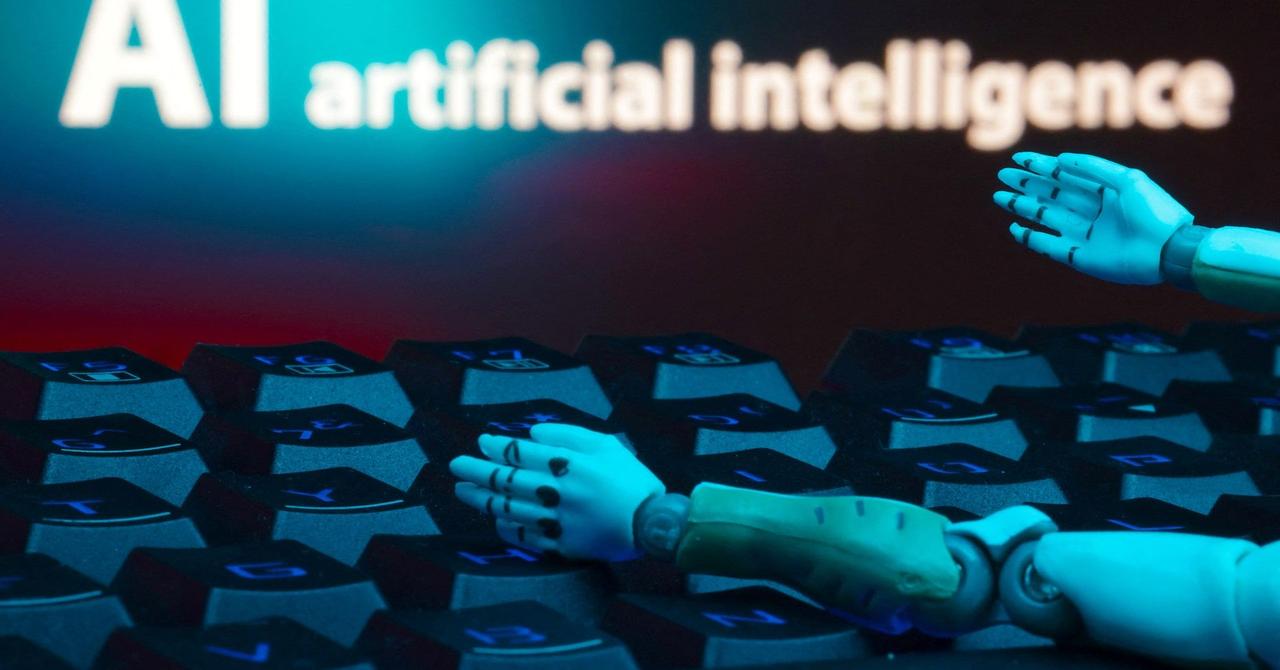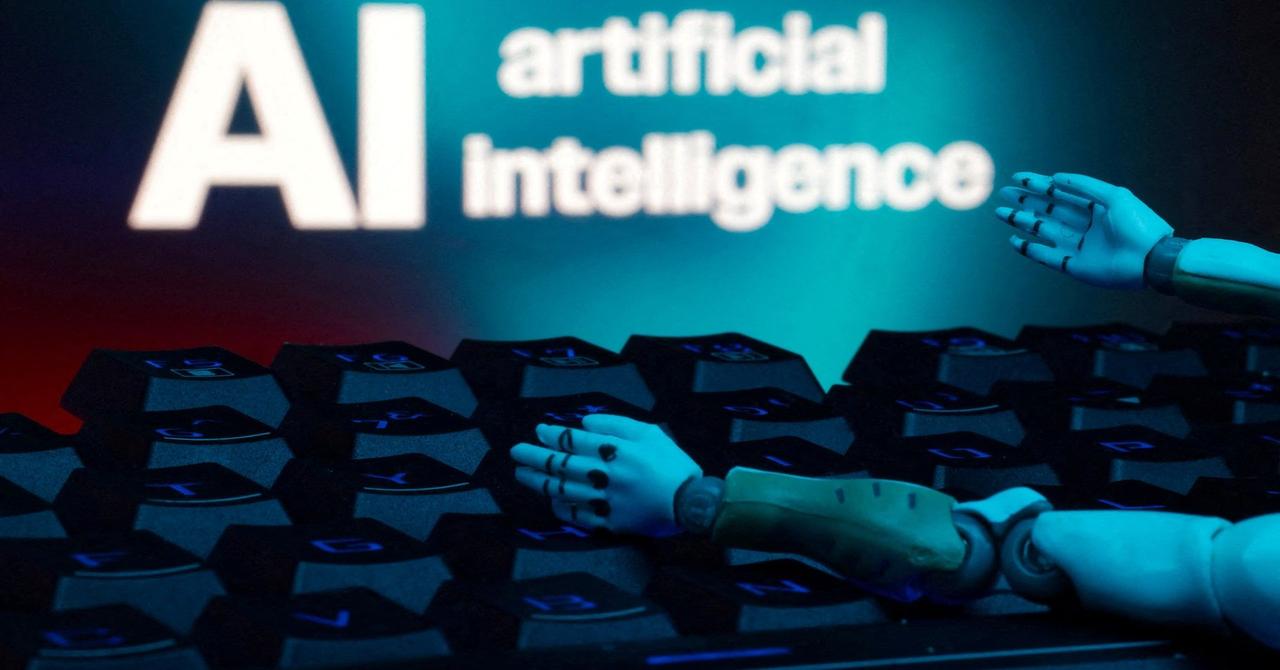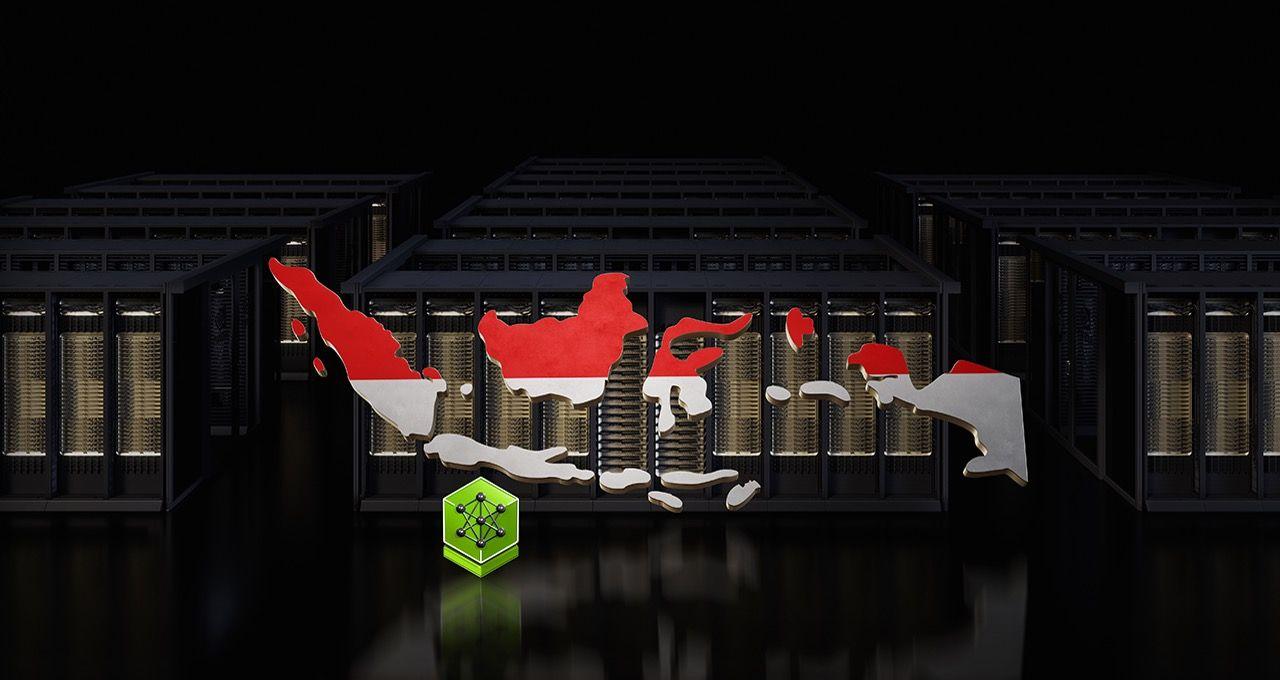Indonesia Unveils National AI Strategy to Attract Foreign Investment and Boost Economic Growth
3 Sources
3 Sources
[1]
Indonesia targets foreign investment with new AI roadmap, official says
JAKARTA, July 22 (Reuters) - Indonesia will finish work next month on its first national strategy on artificial intelligence in a bid to attract foreign investment, an official said, as Southeast Asia's largest economy looks to join the global AI and chip-making race. The move follows neighbouring Malaysia's push to establish itself as a regional hub for AI development, securing billions of dollars from global tech firms seeking to build critical infrastructure to meet growing demand for cloud and AI services. Indonesia's AI roadmap will be the first comprehensive AI document in the country, the fourth largest in the world by population, since a smaller ethics guideline in 2023, Deputy Minister of Communications and Digital Nezar Patria told Reuters in an interview at his office on Monday. "The roadmap will help AI developers navigate (Indonesia's market), including on infrastructure and also on computational clusters," he said, adding that it would detail AI adoption in sectors such as health and agriculture. Nezar said the roadmap was designed to establish the country's AI ecosystem. "This will give an idea to investors about the potential of AI use in Indonesia," he said. "We're hoping they are interested in investing their capital in Indonesia." An April report by Boston Consulting Group said ASEAN nations were positioned for substantial AI-driven gains, with GDP contributions ranging from 2.3% to 3.1% by 2027, and Indonesia projected to see the highest impact in terms of absolute gross domestic output growth. But despite some investments, development has been slow in Indonesia compared to other parts of the region. Nvidia (NVDA.O), opens new tab was involved with Indonesia's biggest tech company GoTo Gojek Tokopedia (GOTO.JK), opens new tab for a large language model service last year, and supplied its chips to the telecommunications company Indosat (ISAT.JK), opens new tab. Microsoft (MSFT.O), opens new tab also said last year it would invest $1.7 billion over the next few years into expanding cloud services and AI in Indonesia. "We're opening up to all global tech companies to get into the industry of AI development in Indonesia," Nezar said. Separately, Indonesia is also pitching foreign firms on its critical minerals, which are needed for hardware development, in order to secure a bigger share of the global semiconductor supply chain, he added. Indonesia has offered the United States the chance to jointly invest in a critical minerals project as part of its tariff negotiations. Washington has sought to find alternative suppliers to China, which dominates the sector but in April added some rare earths to its export restriction list in retaliation for U.S. tariffs. Damar Juniarto, an analyst from research centre PIKAT Demokrasi, which monitors AI safety in Indonesia, said the country was not ready to be an AI developer owing to a lack of infrastructure such as chips, and a lack of AI skills in the workforce. Nezar said there remained risks of misinformation, intellectual property and data leaks. He did not detail how the roadmap would address those issues. Reporting by Stanley Widianto; Editing by Gibran Peshimam and Kate Mayberry Our Standards: The Thomson Reuters Trust Principles., opens new tab
[2]
Indonesia targets foreign investment with new AI roadmap, official says - The Economic Times
Indonesia will finish work next month on its first national strategy on artificial intelligence in a bid to attract foreign investment, an official said, as Southeast Asia's largest economy looks to join the global AI and chip-making race. The move follows neighbouring Malaysia's push to establish itself as a regional hub for AI development, securing billions of dollars from global tech firms seeking to build critical infrastructure to meet growing demand for cloud and AI services. Indonesia's AI roadmap will be the first comprehensive AI document in the country, the fourth largest in the world by population, since a smaller ethics guideline in 2023, Deputy Minister of Communications and Digital Nezar Patria told Reuters in an interview at his office on Monday. "The roadmap will help AI developers navigate (Indonesia's market), including on infrastructure and also on computational clusters," he said, adding that it would detail AI adoption in sectors such as health and agriculture. Nezar said the roadmap was designed to establish the country's AI ecosystem. "This will give an idea to investors about the potential of AI use in Indonesia," he said. "We're hoping they are interested in investing their capital in Indonesia." An April report by Boston Consulting Group said ASEAN nations were positioned for substantial AI-driven gains, with GDP contributions ranging from 2.3% to 3.1% by 2027, and Indonesia projected to see the highest impact in terms of absolute gross domestic output growth. But despite some investments, development has been slow in Indonesia compared to other parts of the region. Nvidia was involved with Indonesia's biggest tech company GoTo Gojek Tokopedia for a large language model service last year, and supplied its chips to the telecommunications company Indosat. Microsoft also said last year it would invest $1.7 billion over the next few years into expanding cloud services and AI in Indonesia. "We're opening up to all global tech companies to get into the industry of AI development in Indonesia," Nezar said. Separately, Indonesia is also pitching foreign firms on its critical minerals, which are needed for hardware development, in order to secure a bigger share of the global semiconductor supply chain, he added. Indonesia has offered the United States the chance to jointly invest in a critical minerals project as part of its tariff negotiations. Washington has sought to find alternative suppliers to China, which dominates the sector but in April added some rare earths to its export restriction list in retaliation for U.S. tariffs. Damar Juniarto, an analyst from research centre PIKAT Demokrasi, which monitors AI safety in Indonesia, said the country was not ready to be an AI developer owing to a lack of infrastructure such as chips, and a lack of AI skills in the workforce. Nezar said there remained risks of misinformation, intellectual property and data leaks. He did not detail how the roadmap would address those issues.
[3]
Indonesia to Launch First National AI Strategy, Seeks Global Tech Investment
Indonesia Prepares National AI Framework to Compete in Southeast Asia's Tech Landscape Indonesia plans to launch its first national artificial intelligence strategy by next month to attract foreign investment and position itself in the global race for AI and chip development. It marks an important change in Southeast Asia's largest economy as it seeks to compete with neighbors like Malaysia, which has already closed billions in AI infrastructure deals. By following the Indonesia AI roadmap, the government aims to position the country as a digital innovation leader in the region. According to Deputy Minister of Communications and Digital, Nezar Patria, the roadmap will provide a comprehensive framework for AI growth in Indonesia, a nation of over 270 million people. This will be the country's most detailed AI policy initiative since the release of an ethics guideline in 2023.
Share
Share
Copy Link
Indonesia is set to launch its first comprehensive national AI strategy next month, aiming to attract foreign investment and position itself in the global AI and chip-making race. The move follows Malaysia's success in securing billions from tech giants for AI infrastructure.
Indonesia's AI Ambitions
Indonesia is poised to make a significant leap in the artificial intelligence (AI) sector with the imminent launch of its first national AI strategy. Set to be unveiled next month, this comprehensive roadmap aims to attract foreign investment and position Indonesia as a key player in the global AI and chip-making race
1
2
.Strategic Objectives and Economic Impact
The AI roadmap is designed to establish Indonesia's AI ecosystem and provide guidance for AI developers navigating the country's market. Deputy Minister of Communications and Digital, Nezar Patria, emphasized that the strategy will detail AI adoption in crucial sectors such as health and agriculture
1
.
Source: Reuters
A recent report by Boston Consulting Group highlighted the potential economic impact of AI in ASEAN nations. The report projects GDP contributions ranging from 2.3% to 3.1% by 2027, with Indonesia expected to see the highest impact in terms of absolute gross domestic output growth
1
2
.Foreign Investment and Global Partnerships
Indonesia is actively seeking to attract global tech companies to invest in its AI development industry. The country has already seen some notable investments:
- Nvidia collaborated with Indonesia's largest tech company, GoTo Gojek Tokopedia, on a large language model service and supplied chips to telecommunications company Indosat
1
. - Microsoft announced a $1.7 billion investment over the next few years to expand cloud services and AI in Indonesia
1
2
.
Critical Minerals and Semiconductor Supply Chain
In a parallel effort, Indonesia is pitching its critical minerals to foreign firms, aiming to secure a larger share of the global semiconductor supply chain. The country has offered the United States an opportunity to jointly invest in a critical minerals project as part of tariff negotiations
1
.Related Stories
Challenges and Concerns

Source: ET
Despite the ambitious plans, some experts express concerns about Indonesia's readiness to become an AI developer. Damar Juniarto, an analyst from research centre PIKAT Demokrasi, points out the lack of necessary infrastructure, such as chips, and a shortage of AI skills in the workforce
1
3
.Deputy Minister Patria acknowledged potential risks, including misinformation, intellectual property issues, and data leaks. However, details on how the roadmap will address these concerns remain unclear
1
2
.Regional Competition
Indonesia's move follows neighboring Malaysia's successful push to establish itself as a regional hub for AI development. Malaysia has already secured billions of dollars from global tech firms for building critical infrastructure to meet the growing demand for cloud and AI services
1
2
3
.
Source: Analytics Insight
As Southeast Asia's largest economy and the world's fourth most populous country, Indonesia's entry into the AI race could significantly impact the regional and global AI landscape. The success of this initiative will depend on effective implementation of the strategy and the country's ability to address existing challenges in infrastructure and workforce development.
References
Summarized by
Navi
[3]
Related Stories
Indonesia Unveils Plans for 'Sovereign AI Fund' to Boost Development and Attract Investment
12 Aug 2025•Business and Economy

Indonesia Launches AI Center of Excellence with NVIDIA, Cisco, and Indosat Support
12 Jul 2025•Technology

Nvidia Plans AI School and Investments in Indonesia
21 Nov 2024•Technology

Recent Highlights
1
Google Gemini 3.1 Pro doubles reasoning score, beats rivals in key AI benchmarks
Technology

2
Meta strikes up to $100 billion AI chips deal with AMD, could acquire 10% stake in chipmaker
Technology

3
Pentagon threatens Anthropic with supply chain risk label over AI safeguards for military use
Policy and Regulation





